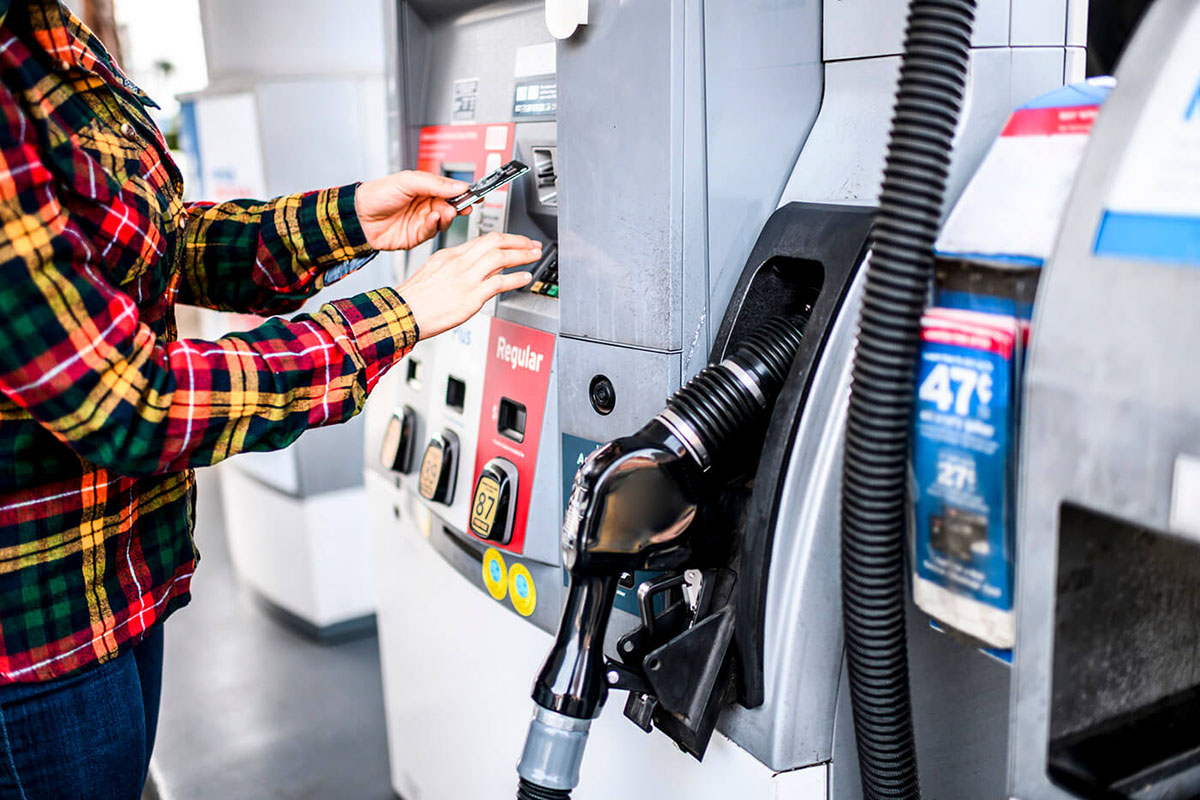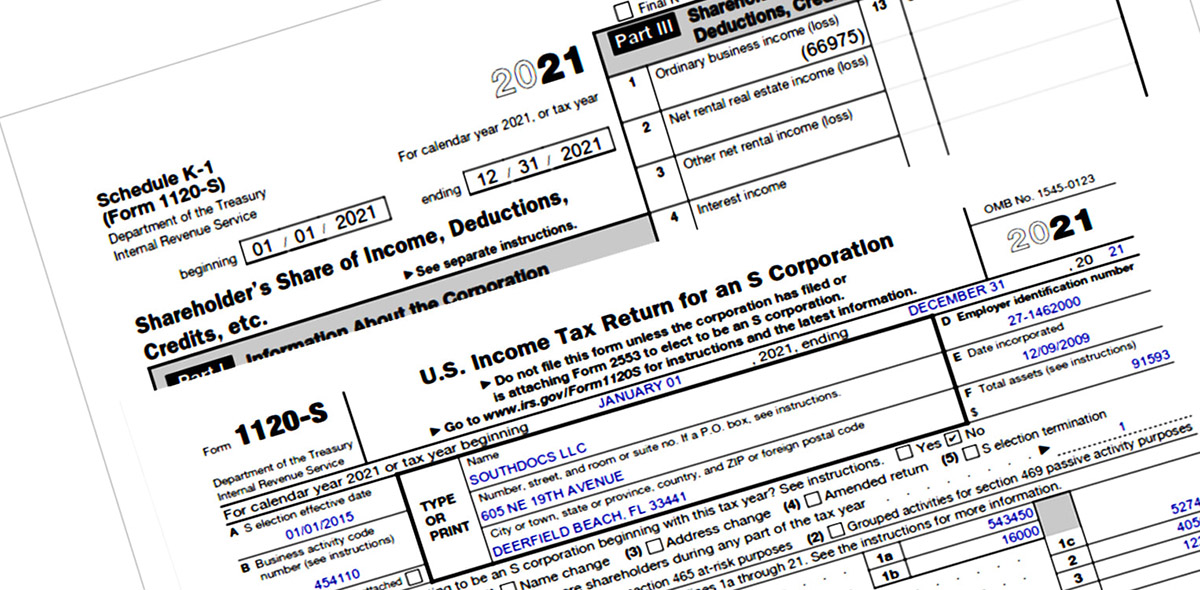

Finance
What Is The Best Fuel Cards For Small Business
Published: November 26, 2023
Discover the top fuel cards for small businesses and streamline your finances with ease. Simplify your operations and optimize your expenses with the best fuel cards on the market.
(Many of the links in this article redirect to a specific reviewed product. Your purchase of these products through affiliate links helps to generate commission for LiveWell, at no extra cost. Learn more)
Table of Contents
Introduction
Fuel is a crucial expense for small businesses, especially those that rely on transportation for their operations. Managing fuel costs can be challenging and time-consuming, but there is a solution: fuel cards. Fuel cards offer a convenient and efficient way to track and control fuel expenses, making them an essential tool for small business owners.
In this article, we will explore the benefits of using fuel cards for small businesses and provide insights into the factors to consider when choosing the best fuel cards. Additionally, we will compare and evaluate some of the top fuel cards available in the market, helping small business owners make an informed decision.
Using fuel cards can streamline the fuel management process and provide several advantages for small businesses. With a fuel card, businesses can eliminate the need for cash or multiple credit cards, simplifying the payment process. Fuel cards also offer detailed reporting features, allowing business owners to monitor fuel consumption, mileage, and track expenses more effectively.
One of the significant advantages of using fuel cards is the ability to set and enforce spending limits. This feature empowers small business owners to control and restrict fuel expenses, preventing overspending and misuse. Additionally, fuel cards often provide discounts and rewards programs, enabling businesses to save money in the long run.
When choosing the best fuel card for your small business, there are several factors to consider. The first consideration is the network coverage. Ensure that the fuel card is widely accepted at major fuel stations, providing convenient access to fuel for your drivers. Additionally, look for fuel cards that offer comprehensive reporting capabilities, allowing you to have a clear overview of your fuel expenses.
Another critical factor is the customer service and support provided by the fuel card provider. Timely and efficient support is essential in case of any issues or questions regarding the fuel card usage. Take into account the reputation and reliability of the fuel card provider to ensure a smooth experience.
In the next section, we will compare and evaluate some of the top fuel cards for small businesses in the market. By examining their features, benefits, and limitations, you will be able to make an informed decision and choose the best fuel card that suits the unique needs of your small business.
Benefits of using fuel cards for small businesses
Fuel cards offer a range of benefits for small businesses, making them an invaluable tool for managing fuel expenses. Here are some of the key advantages:
- Improved expense tracking: Fuel cards provide detailed reporting and analytics features, allowing small business owners to track and analyze fuel expenses more efficiently. This helps to identify any unauthorized or excessive spending, enabling better cost control.
- Enhanced security: Fuel cards offer a secure payment method for fuel purchases. Unlike cash or traditional credit cards, fuel cards are typically linked to specific vehicles or drivers, reducing the risk of fraudulent activity or unauthorized use.
- Streamlined administrative processes: With fuel cards, there is no need for manual tracking of receipts and invoices. The transaction data captured by fuel cards can be easily integrated into accounting systems, simplifying the record-keeping process and reducing administrative tasks.
- Built-in expense controls: Fuel cards can be customized to set spending limits and restrict purchases on specific items or services. This ensures that employees adhere to company policies and prevents misuse or unauthorized expenditures.
- Discounts and rewards: Many fuel card providers offer discounts and rewards programs, providing an opportunity for small businesses to save money on fuel expenses. These rewards can include cashback, discounts on fuel purchases, or additional benefits such as vehicle maintenance services.
- Better fuel management: Fuel cards provide real-time data on fuel consumption, mileage, and vehicle efficiency. This information allows small businesses to monitor and optimize their fuel usage, implementing strategies to reduce costs and improve overall fuel efficiency.
- Convenience and flexibility: Fuel cards can be used at various fuel stations, providing convenience and flexibility for drivers. This eliminates the need to carry cash or rely on specific fuel station chains, ensuring that drivers have access to fuel whenever and wherever they need it.
Overall, fuel cards offer significant advantages for small businesses. They streamline administrative processes, improve expense tracking, enhance security, and provide opportunities for cost savings. By adopting fuel cards, small business owners can take control of their fuel expenses and optimize their operations.
Factors to consider when choosing the best fuel cards for small business
Choosing the right fuel card for your small business is crucial to maximize its benefits and meet your specific needs. Here are some important factors to consider when selecting the best fuel card:
- Accepted fuel stations: Before choosing a fuel card, ensure that it is accepted at a wide network of fuel stations. The more extensive the network coverage, the more convenient it will be for your drivers to fuel up without the hassle of searching for specific stations.
- Reporting capabilities: Look for fuel cards that offer robust reporting features. The ability to generate detailed reports on fuel consumption, mileage, and expenses allows you to have better visibility and control over your fuel usage. Consider whether the reporting can integrate with your accounting software for seamless record-keeping.
- Transaction restrictions: Assess the flexibility of the fuel card in setting transaction restrictions. You may want to limit purchases to just fuel or include additional items such as vehicle maintenance or snacks. Make sure the fuel card you choose allows you to customize purchase restrictions according to your business requirements.
- Customer support: Evaluate the quality of customer service and support provided by the fuel card provider. Make sure they offer responsive and reliable assistance to address any issues or concerns promptly. Look for online resources and tools that can assist you in managing your fuel card account effectively.
- Cost and fees: Consider the cost structure associated with the fuel card. Compare the fees charged by different providers, such as transaction fees, account setup fees, or monthly fees. Take into account any potential discounts or rewards programs that can offset these costs.
- Additional benefits: Some fuel cards offer additional perks such as roadside assistance, vehicle tracking services, or discounts on other business-related expenses. Evaluate these value-added benefits and determine if they align with your business requirements.
- Integration capabilities: If you use other software tools for fleet management or expense tracking, ensure that the fuel card can integrate seamlessly with these systems. Compatibility with existing software can streamline your operations and avoid manual data entry.
By considering these factors, you can choose the best fuel card that aligns with your small business needs, providing you with cost savings, convenience, and efficient fuel management.
Comparison of the top fuel cards for small business
When it comes to choosing the best fuel card for your small business, there are several options available in the market. Let’s compare and evaluate some of the top fuel cards to help you make an informed decision:
- Fuel Card A: Fuel Card A offers a wide network of fuel stations and competitive pricing. It provides detailed reporting capabilities, including transaction history and fuel consumption data. This fuel card also offers customizable purchase restrictions and 24/7 customer support. However, it does not offer additional benefits or integration capabilities with other software systems.
- Fuel Card B: Fuel Card B has a smaller network of fuel stations but offers discounted fuel prices and rewards programs. It provides comprehensive reporting features, including real-time fuel consumption data and expense tracking. This fuel card offers flexibility in transaction restrictions and has excellent customer support. However, it does not have extensive integration capabilities or additional benefits beyond fuel savings.
- Fuel Card C: Fuel Card C has an extensive network of fuel stations, ensuring convenience for your drivers. It offers competitive pricing, detailed reporting, and 24/7 customer support. This fuel card also provides additional benefits such as roadside assistance and vehicle tracking services. However, it may have slightly higher transaction fees compared to other options.
- Fuel Card D: Fuel Card D offers a wide network of fuel stations and competitive fuel prices. It provides comprehensive reporting features, including expense tracking and fuel consumption analytics. This fuel card also offers integration capabilities with fleet management software, making it suitable for businesses that rely heavily on fleet operations. However, it may have higher upfront account setup fees compared to other fuel cards.
Ultimately, the best fuel card for your small business will depend on your specific needs and priorities. Consider factors such as network coverage, reporting capabilities, customer support, cost structure, additional benefits, and integration capabilities. Analyze how these factors align with your business requirements and choose the fuel card that offers the most value and benefits for your small business.
Fuel Card A
Fuel Card A is an excellent option for small businesses looking for a fuel card that offers a wide network of fuel stations and competitive pricing. With Fuel Card A, your drivers will have access to a large number of fuel stations, ensuring convenience and flexibility in fueling up.
One of the key features of Fuel Card A is its comprehensive reporting capabilities. It provides detailed reports on fuel consumption, transaction history, and expenses. This allows you to have a clear overview of your fuel usage and track your expenses effectively.
Another advantage of Fuel Card A is the ability to customize purchase restrictions. You can set limits on the types of purchases allowed or restrict the card to fuel-only transactions. This empowers you to control and manage your fuel expenses more efficiently.
When it comes to customer support, Fuel Card A offers 24/7 assistance. If you encounter any issues or have questions regarding your fuel card, their customer support team is readily available to provide timely and efficient help.
However, it’s worth noting that Fuel Card A does not offer additional benefits beyond its fuel card services. This means that you won’t have access to perks such as roadside assistance or vehicle tracking services with this particular fuel card.
In terms of integration capabilities, Fuel Card A does not have extensive features for integration with other software systems. If you rely on fleet management or expense tracking software, you may need to consider other fuel card options that offer better integration capabilities.
Overall, Fuel Card A is a solid choice for small businesses that prioritize a wide network of fuel stations, competitive pricing, and detailed reporting. By using Fuel Card A, you can effectively manage your fuel expenses and have greater control over your business operations.
Fuel Card B
Fuel Card B is a top contender for small businesses seeking a fuel card that offers discounted fuel prices and rewards programs. While it may have a smaller network of fuel stations compared to some other options, Fuel Card B makes up for it with its attractive cost-saving features.
One of the key benefits of Fuel Card B is its discounted fuel prices. By using this card, your small business can save on fuel expenses, allowing you to allocate those savings towards other areas of your business. Additionally, Fuel Card B also offers rewards programs, providing further opportunities for cost savings and benefits.
In terms of reporting capabilities, Fuel Card B provides comprehensive features that allow you to monitor and track your fuel consumption. Real-time fuel consumption data and expense tracking reports provide valuable insights into your fuel usage, helping you manage your expenses effectively.
Fuel Card B also offers flexibility in transaction restrictions. You have the ability to customize purchase restrictions according to your business needs. Whether you want to limit purchases to fuel only or include additional items such as vehicle maintenance, Fuel Card B allows you to set the restrictions that align with your expense management goals.
Customer support is another strength of Fuel Card B. Their customer service is known for being responsive and efficient, ensuring that any inquiries or concerns regarding your fuel card will be addressed promptly.
However, it’s worth noting that Fuel Card B may have limitations in terms of integration capabilities with other software systems. If seamless integration with fleet management or expense tracking software is a priority for your small business, you may want to explore other fuel card options that offer more advanced integration features.
In summary, Fuel Card B is an ideal choice for small businesses looking to save on fuel expenses through discounted prices and rewards programs. With its comprehensive reporting capabilities and flexibility in transaction restrictions, Fuel Card B can effectively support your expense management efforts.
Fuel Card C
Fuel Card C stands out as a top fuel card option for small businesses due to its extensive network of fuel stations, competitive pricing, and additional benefits. With Fuel Card C, your drivers will have convenient access to a wide range of fuel stations, ensuring hassle-free fueling.
One of the key advantages of Fuel Card C is its competitive pricing. The card offers discounted fuel prices, allowing your small business to save on fuel expenses. This can significantly impact your overall operational costs and contribute to improved profitability.
In addition to discounted fuel prices, Fuel Card C also provides several additional benefits. These benefits can include services such as roadside assistance, vehicle tracking, and even additional discounts on related business expenses. Such perks can be valuable for small businesses, providing added value and peace of mind.
Fuel Card C excels in its reporting features, providing you with detailed reports on fuel consumption, transaction history, and expenses. This comprehensive reporting allows for effective analysis of your fuel usage, enabling you to make data-driven decisions to optimize fuel efficiency and control costs.
When it comes to customer support, Fuel Card C offers 24/7 assistance. Their customer support team is dedicated to resolving any issues or queries promptly, ensuring smooth operations for your small business.
However, it’s important to note that Fuel Card C may have slightly higher transaction fees compared to some other fuel card options. It is essential to evaluate the overall cost structure and weigh the fees against the benefits and discounts provided by the card.
Integrating Fuel Card C with other software systems may not be as seamless as with some other fuel card providers. If you require advanced integration capabilities with fleet management or expense tracking software, it’s advisable to assess if Fuel Card C can meet your specific integration needs.
In summary, Fuel Card C offers a wide network of fuel stations, competitive pricing, and valuable additional benefits for small businesses. With its comprehensive reporting features and dedicated customer support, Fuel Card C provides the tools necessary to effectively manage your fuel expenses and optimize your operations.
Fuel Card D
Fuel Card D is a top choice for small businesses that prioritize flexibility, comprehensive reporting, and integration capabilities. While it offers a wide network of fuel stations and competitive fuel prices, its standout feature lies in its advanced integration features.
One of the key advantages of Fuel Card D is its extensive network of fuel stations, ensuring convenience for your drivers. With Fuel Card D, your drivers will have access to a large number of fuel stations, allowing them to fuel up easily without having to search for specific stations.
Fuel Card D also offers competitive fuel prices, helping your small business save on fuel expenses. By taking advantage of these lower prices, you can effectively manage your fuel costs and allocate those savings to other important areas of your business.
One of the standout features of Fuel Card D is its integration capabilities. It seamlessly integrates with fleet management and expense tracking software, allowing for streamlined operations and eliminating the need for manual data entry. This feature can significantly enhance your efficiency and accuracy in managing fuel expenses and related data.
Comprehensive reporting is another strength of Fuel Card D. It provides detailed reports on fuel consumption, expenses, and transaction history. These reports offer valuable insights into your fuel usage patterns and enable data-driven decision-making to optimize fuel efficiency and control costs.
It’s worth noting that Fuel Card D may have higher upfront account setup fees compared to other fuel card options. However, considering its advanced integration features and comprehensive reporting capabilities, these fees may be justified by the benefits they provide.
While Fuel Card D offers excellent integration and reporting features, it does not provide additional benefits beyond its fuel card services. If roadside assistance or vehicle tracking services are important to your small business, you may want to explore other fuel card options that offer these additional perks.
In summary, Fuel Card D is a top choice for small businesses seeking a fuel card with integration capabilities, comprehensive reporting, and a wide fuel station network. By utilizing Fuel Card D, you can streamline your fuel management processes, optimize fuel efficiency, and effectively control your fuel expenses.
Conclusion
Choosing the best fuel card for your small business is a crucial decision that can significantly impact your operations and expenses. Fuel cards offer a range of benefits, including improved expense tracking, enhanced security, streamlined administrative processes, and potential cost savings through discounts and rewards programs.
When selecting a fuel card, consider factors such as the network coverage, reporting capabilities, transaction restrictions, customer support, cost structure, additional benefits, and integration capabilities. Assessing these factors will help you choose a fuel card that aligns with your specific business needs and priorities.
In this article, we discussed the benefits of using fuel cards for small businesses and the factors to consider when choosing the best fuel card. We compared and evaluated four top fuel cards: Fuel Card A, Fuel Card B, Fuel Card C, and Fuel Card D.
Fuel Card A offers a wide network of fuel stations and comprehensive reporting capabilities, while Fuel Card B provides discounted fuel prices, rewards programs, and flexible transaction restrictions. Fuel Card C excels in its extensive network, competitive pricing, and additional benefits, while Fuel Card D stands out for its advanced integration features and comprehensive reporting.
Ultimately, the best choice for your small business depends on your unique requirements and priorities. Consider the strengths and limitations of each fuel card, weigh them against your specific needs, and choose the fuel card that offers the most value and benefits for your small business.
By selecting the right fuel card, you can streamline fuel management processes, gain better control over expenses, and optimize fuel efficiency. Make an informed decision, and leverage the benefits of a fuel card to fuel the success of your small business.














